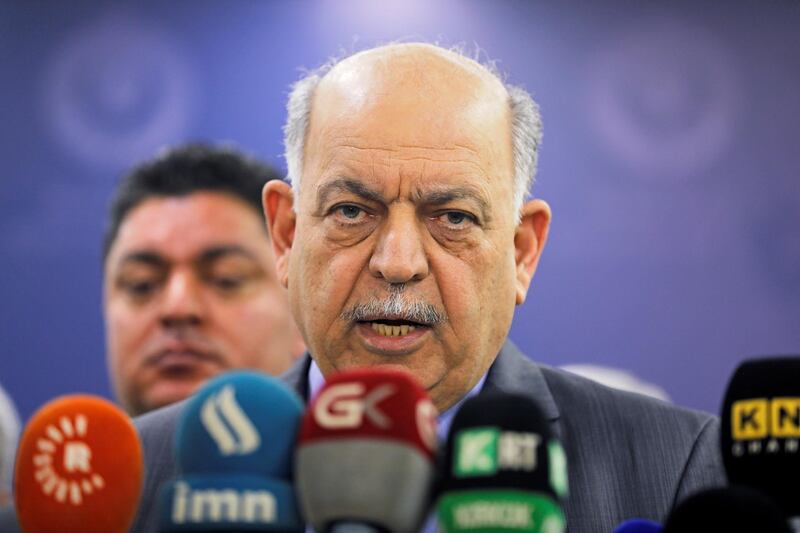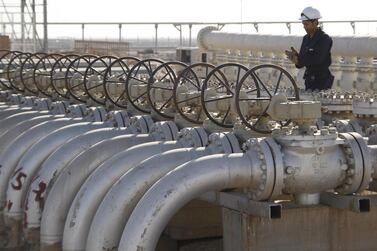Exxon Mobil’s removal of staff from Iraq was only a temporary measure and oil installations were still safe, the country’s oil minister said.
"Exxon Mobil left for a short period," Thamir Ghadhban said in Jeddah. "It’s only temporary.
"They evacuated only 80 staff to Dubai so they have not pulled out of the contract or terminated the contract at all.
"I hope that they will be back soon. We know that they were instructed by their government."
The oil major pulled staff out of Iraq last week after the US embassy instruction to move all non-essential American workers out of the country.
Other majors including Shell were said to be "monitoring" the situation.
Exxon Mobil is the lead contractor in West Qurna, one of Iraq’s largest oil fields, west of the southern province of Basra.
Shell, BP, Exxon Mobil, Russia's Lukoil and Italy's Eni are among foreign companies working in the south.
Iraq is the second-largest oil producer in the Middle East, with output for April averaging 4.6 million barrels per day.
The National reported on Friday that Exxon Mobil had begun to remove its staff from Basra, but the US company declined to be more explicit about its move.
Mr Ghadhban said foreign workers in Iraq were safe and there were no threats against any oil installations in the country.
"South of Iraq is enjoying peace and tranquillity," he said. "There are thousands and thousands of expatriates working in Iraq as well as Iraqis in the south, especially where most of the oil is.
"I haven’t heard of even a single incident so their [Exxon’s] evacuation is completely a measure by their government to safeguard what they call soft targets, otherwise there are no incidents."
Oil infrastructure in key producing states in the Middle East have been exposed to new vulnerabilities after attacks in the UAE and Saudi Arabia over the past week.
Four tankers, including two belonging to Saudi Aramco, were attacked off the coast of the UAE emirate of Fujairah, while the kingdom's east-west pipeline with the capacity to carry 5 million bpd of crude came under attack by armed drones.
Mr Ghadhban also dismissed an attack near the US embassy in Baghdad’s Green Zone on Saturday night, saying it was an isolated incident and not an escalation in regional conflict.
Despite perceived threats to US interests, he said companies such as GE were keen to operate in the country.
Iraq has been courting foreign energy companies to rehabilitate its utilities sector, which has been crippled by decades of war.
The US company's rival, Siemens, signed a €700m contract to overhaul Iraq's damaged utilities last month as part of a $15 billion (Dh55.1bn) scheme to install 11GW of power capacity.
GE had submitted a proposal about the same time last year for a 14GW capacity addition in Iraq. Its proposal however, was overshadowed by suggestions that the US had been pressuring Baghdad to favour its company over Siemens.
“They [GE] are definitely interested. They have many contacts in power and other industries, GE, not only in power but also other industries,” Mr Ghadhban said.
He said his ministry would meet soon with the Kurdistan Regional Government to discuss the transfer of crude from the Kirkuk oilfield in the north, which has been planned for the second half of the year.
Exports were halted in 2017 due to a standoff between the KRG and the federal Iraqi government.








